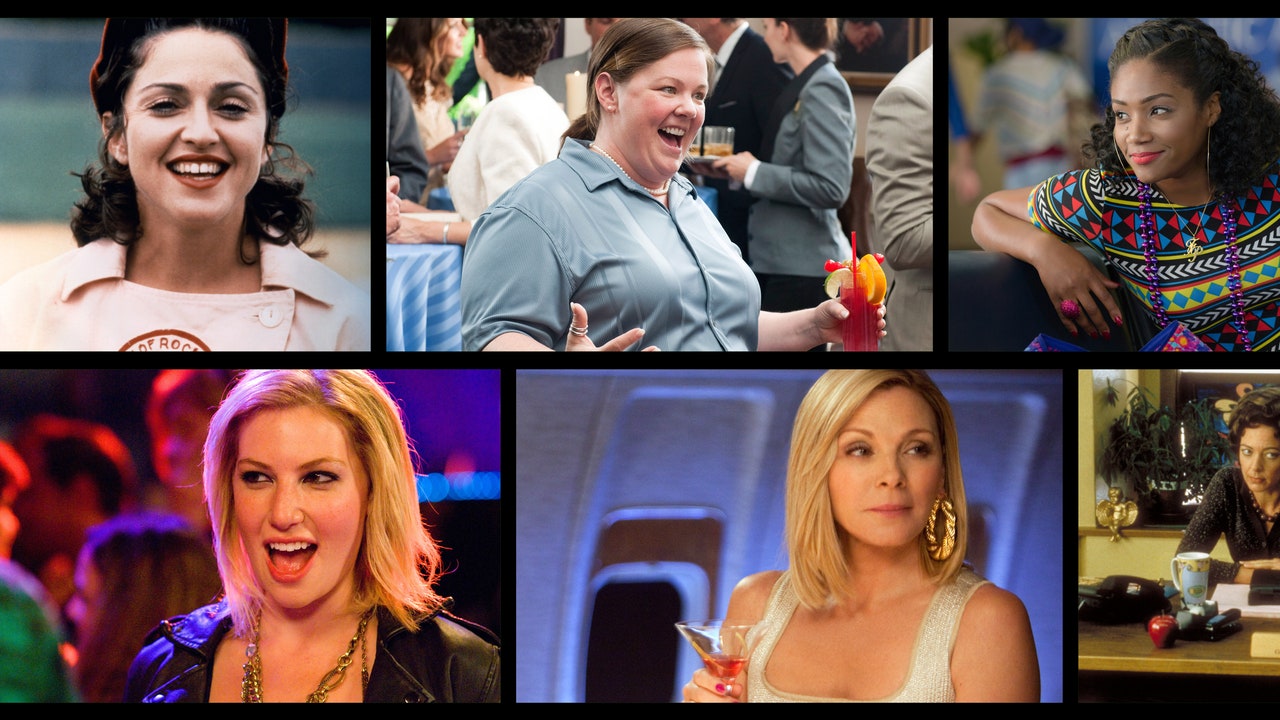The Horny Friend Is Always the Best Character in Romantic Comedies

[ad_1]
In all romantic comedies there are two types of people: one girl who isn’t looking for love because she just moved to this picturesque beach town to focus on her miniature doll furniture business, and one girl who gets so drunk she performs oral sex on a telephone pole.
There’s the protagonist who’s not ready to open up, and then there’s the best friend who met an international soccer team at a bar and is leaving to have an orgy.
There’s the star, who is slowly but surely falling for her enigmatic mailman, and there’s her married friend, who just wishes her husband Doug would let her peg him for once!
That second woman should be the star of the movie.
The Horny Best Friend is one of the great archetypes in romantic comedies, a hallmark of the genre, like emotionally transformative karaoke performances and running through airports. Her goal isn’t to get married, it’s to get off.
The main character is a blank canvas of a woman who is written with purposeful blandness so that anyone can project onto her, imagining ourselves in the fairytale. She exists to find love. The Horny Best Friend exists to make us laugh. The protagonist is “quirky!” The best friend is a fully unhinged sex monster. (See Set It Up: Zoey Deutch’s protagonist is mildly sexual, whereas her roommate, played by Meredith Hagner, “had sex with [a guy] in the handicap bathroom of an Acela.”) The protagonist is easily embarrassed. The best friend is embarrassed by nothing. The protagonist doesn’t know what she wants. The best friend knows exactly what she wants and that is sex in a king-size water bed, covered in chocolate sauce.
It’s Samantha finding herself through sex versus Carrie losing herself through Big. Madonna playing ball and partying in A League of Their Own while Geena Davis’s character thinks about baseball strategy and war. Tiffany Haddish’s character in Girls Trip worrying only about remembering to keep a grapefruit next to her bed, while Regina Hall’s character worries about her husband cheating. It is Daniel Levy’s cheerful disgust with the institution or marriage next to Kristin Stewart’s determination to enter it in The Happiest Season. Sebastian’s “Kiss the Girl” to Ariel’s bug-eyed muteness. Mercutio’s filthy verses versus Romeo’s flowery ones.
In early Hollywood romances, heroines were more complex. Katherine Hepburn and her peers played women who were both sexual and emotionally serious; they netted Oscars by doing laugh-out-loud physical comedy and soul-stirring monologues in the same movie. Contemporary romantic comedies, as film critic Shanna Yellen has pointed out in Glamour, “focus on compatibility and deemphasize sex.” Love, these movies tend to suggest, is about two conventionally attractive thin white people accepting each others’ mild flaws and entering into marriage (common flaws include: being a perfectionist, being afraid to love, and other “my greatest flaw is actually my greatest strength” obnoxiousness).
[ad_2]
Source link




